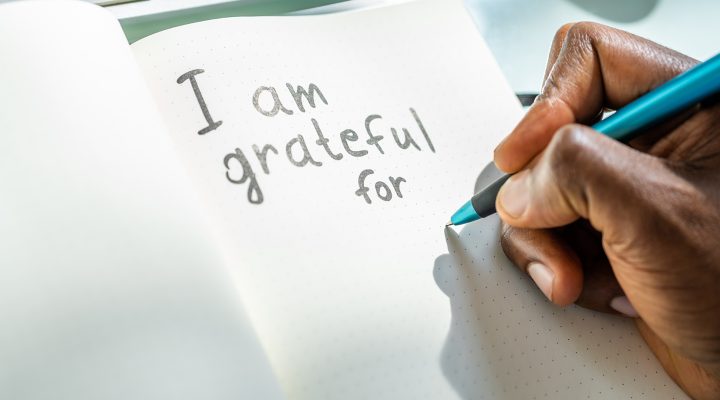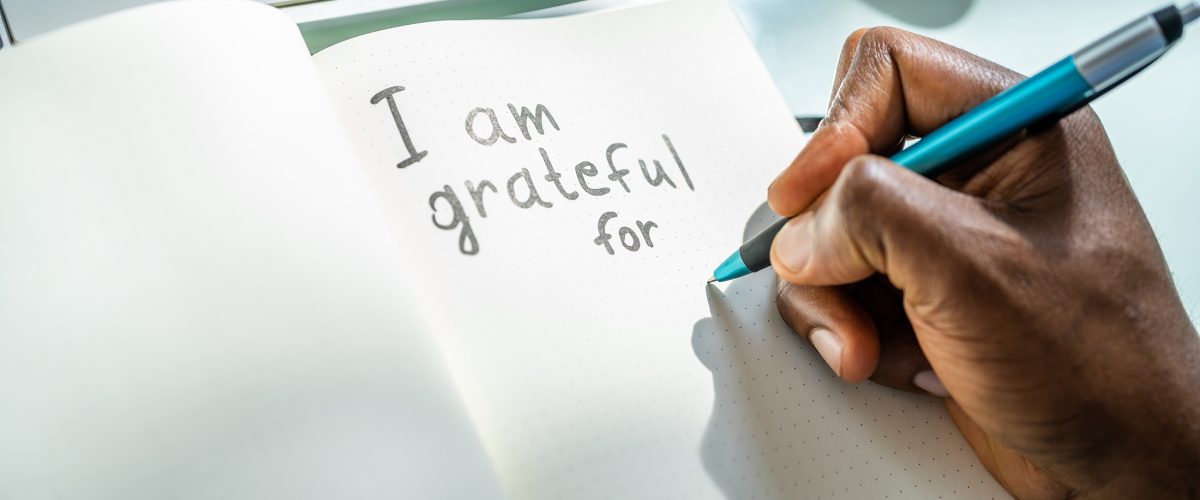As we approach Thanksgiving, I have been thinking about all the things for which I am grateful. Admittedly, this can be a challenge during times of political upheaval and uncertainty. Like so many other people around the country, those in my orbit are grieving and fighting a sense of dislocation. We wonder what’s next.
To moments like these, Jesus calls his followers to be the salt and light.
“If the salt loses its flavor, what’s the point of having it?” Jesus says in Matthew 5.13. If we no longer reflect God’s light, then what are we doing? Facing a holiday centered on gratitude that might include people with a different worldview can double the difficulties of this moment.
While wrestling with these questions, I stumbled on an old note on my phone. Many years ago, I started a “gratitude list.” On this list, I typed (or dictated) blessings, good things, people’s names, specific events and sights. At various points, when I thought of good things and had enough awareness to notice them, I wrote them down. The list was long. Various entries made me smile (“the church shower,” written after running to the office on a hot summer day). Others brought back memories (“endless stars in the sky,” written in Haiti in 2016; or “new friends,” Iona 2022).
Going back over the list can be overwhelming. There were so many good things.
Despite the problems of the world, I can see in vivid typewritten characters that God is good, God has been good, and, in all likelihood, God will continue to be good. I submit that anyone could make a list of good things and find a clear testimony of God’s presence. The simplest act of taking a breath in the morning is a wonderful thing. It’s evidence of a new day, and each day is a gift.
“Bad things still happen, but they aren’t the full story.”
Do wonderful lists of blessings mean nothing bad happens? Certainly not. Bad things still happen, but they aren’t the full story. Life is like a roller coaster. It’s full of ups and downs, good and bad, twists and turns. Our calling is to be faithful — not Pollyannaish (see Eleanor Porter’s 1913 novel Pollyanna). When we are faithful to God, we can experience the ups and downs and twists and turns, recognizing they are part of life’s journey.
Instead of focusing on the bad, we can look for the good because it’s always there. When we find something good, we can give God our thanks. Gratitude is a muscle, and the more we exercise it, the easier it gets to be grateful.
In his first letter to the Thessalonians, Paul encourages the new Christ followers to “give thanks in all circumstances.” The earliest New Testament writing didn’t limit Thanksgiving to once per year. It says, “in all circumstances.”
In other words, when things go well, give thanks. When they don’t, give thanks then too. Paul wrote to the Thessalonian Christians within a few months of preaching there. He cared deeply for them, referring to them as “siblings” 14 times in the short book. He wanted them to find the richness of a life in Christ he had found. His desire for them was to grow in faith. Part of growth is honing the ability to see the good God is doing all around us, and he would truly know how hard it was at times.
Yet even in trying times, which Christ-followers in the first century would find often, we can find things for which we can be grateful. This is what Paul meant by “give thanks in all circumstances.”
When a relative recently made an oddly placed eugenics innuendo, I paused. I took a breath before responding. Having my “gratitude list” in the back of my mind led me to try and think of some good things about him. He’s kind, generous and loves our extended family. I don’t know where his comment came from and chose to ignore it. Was this the moment to confront him about some vague, misplaced belief about superior races? It didn’t feel like it. Instead, we moved on, and we still have a relationship.
That’s not always possible. Some interactions can be vitriolic, nefarious and downright ugly. However, they don’t have to be. Although we cannot control anyone else, we can control our own reactions. How we react can have a huge impact on maintaining peace in trying times. Finding the strength to pause, breathe and think before reacting is essential for continuing to be the salt and light.
As an exercise, I ask myself, “Where is the good around you? What are some things for which you can be grateful?” Answering these questions helps me exercise my gratitude muscle, and the more I exercise it, the more I can give thanks. There’s so much good in the world. Sometimes, it’s just harder to see.
As I hear from people who are discouraged and feeling down, especially in the last month, I try to encourage everyone to see the good. If we look for the good, and then we see it, we need to give thanks.
Matthew Tennant serves as senior pastor of University Baptist Church in Charlottesville, Va. He is a graduate of Carson-Newman College, University of Alabama at Birmingham, Baptist Theological Seminary at Richmond, and University of Oxford. He has written several books, including Crossing the Lines We Draw.



